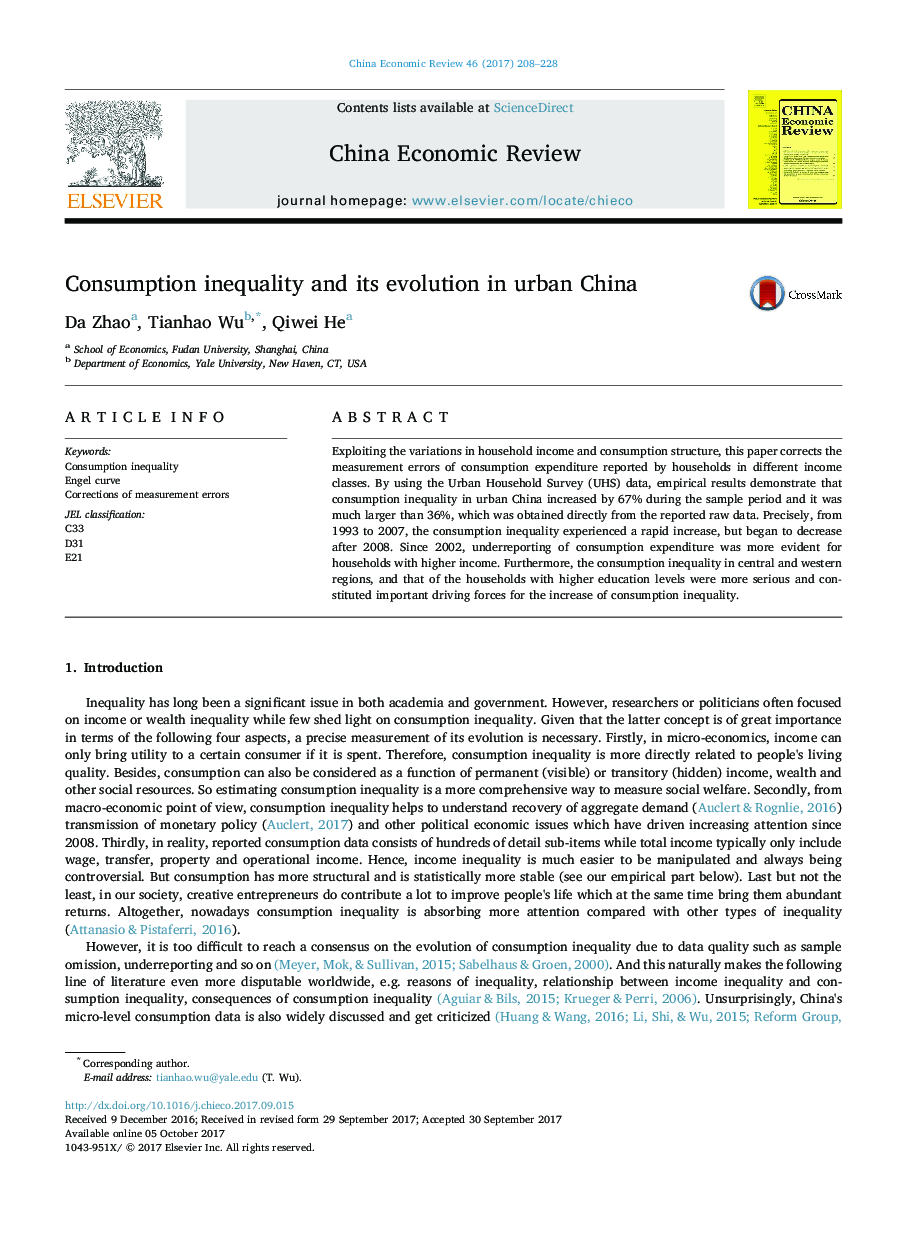| Article ID | Journal | Published Year | Pages | File Type |
|---|---|---|---|---|
| 5047167 | China Economic Review | 2017 | 21 Pages |
â¢Measurement errors in consumption and income data caused the inequalities to be seriously underestimatedâ¢We used the Urban Household Survey (UHS) dataset to revisit the consumption inequality in urban Chinaâ¢Consumption inequality in urban China increased by 67% during 1993 to 2010 after correcting the measurement errorsâ¢Underreporting of consumption expenditure was more evident for households with higher income since 2002â¢Consumption inequality in central and western regions and of the households with higher education levels were more serious
Exploiting the variations in household income and consumption structure, this paper corrects the measurement errors of consumption expenditure reported by households in different income classes. By using the Urban Household Survey (UHS) data, empirical results demonstrate that consumption inequality in urban China increased by 67% during the sample period and it was much larger than 36%, which was obtained directly from the reported raw data. Precisely, from 1993 to 2007, the consumption inequality experienced a rapid increase, but began to decrease after 2008. Since 2002, underreporting of consumption expenditure was more evident for households with higher income. Furthermore, the consumption inequality in central and western regions, and that of the households with higher education levels were more serious and constituted important driving forces for the increase of consumption inequality.
